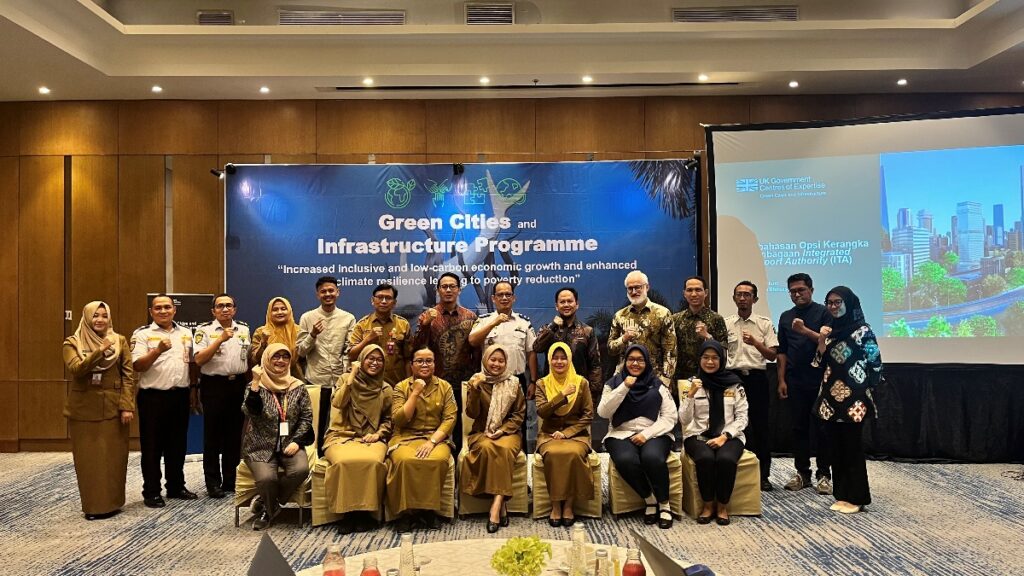- Three institional options for the future Integrated Transport Authority (ITA) were presented, ranging from partial service integration to full unification.
- Stakeholder engagement highlighted the importance of regional differentiation, with Bappeda Jatim calling for options implication to be mapped by the local authority.
- Strong support emerged for the ITA from both governmental and civil society actors, with calls to incorporate international expertise - particularly from the UK.

Stakeholders discuss strategic options for an Intregrated Transport Authority.
The Green Cities, Infrastructure, and Energy Programme (GCIEP), has been actively engaging stakeholders to explore the potential establishment of an ITA for the Greater Surabaya (GKS+) region, comprising Surabaya City, Gresik, and Sidoarjo)
Following a series of one-on-one consultations, the second focus group discussion explored strategic options for an ITA, held on 5 May 2025 in Surabaya. Participants included GCIEP experts Julian Smith, Faris Saffan, Shanisa Luthfiya, Fifiek Mulyana, Umar Dhani and Mizandaru Wicaksono. The discussion centred on three strategic options for the ITA’s institutional structure:
- Option A: Partial integration through unified ticketing, modelled after Jakarta’s JakLingko system.
- Option B: Consolidation of all transport services under the ITA, excluding the Surabaya Regional Railway Line.
- Option C: Full integration of all services into a single unified body.
Stakeholders offered constructive feedback. Notably, Bappeda Jatim recommended a territorial analysis of each option to reflect the varying levels of administrative authority and infrastructure readiness across municipalities.
GCIEP Transport Expert, Julian Smith, highlighted the importance of integrated cost-sharing to optimise financial resources across jurisdictions, “Cost sharing, when considered in an integrated manner, provides more financial resources for everyone compared to individual contributions.”
Participants also discussed a spectrum of institutional models - from basic coordination bodies to comprehensive regional authorities. Mizandaru Wicaksono, from the Institute for Transportation and Development Policy, contributed insights from the Jabodetabek integration experience, which underscored the value of phased implementation and stakeholder alignment.
The session concluded with strong stakeholder support for the ITA initiative, viewed as a transformative opportunity to enhance public transport in Metro Surabaya. Moving forward, community engagement and international collaboration - particularly the transfer of UK expertise - will be essential. A forthcoming high-level meeting with the Governor will aim to refine the ITA's strategic vision and ensure an inclusive, effective framework for regional mobility integration.
The UK’s Green Cities, Infrastructure and Energy Programme is tackling climate change and extreme poverty by accelerating the delivery of sustainable green cities and climate-resilient infrastructure
Published
15/05/25
